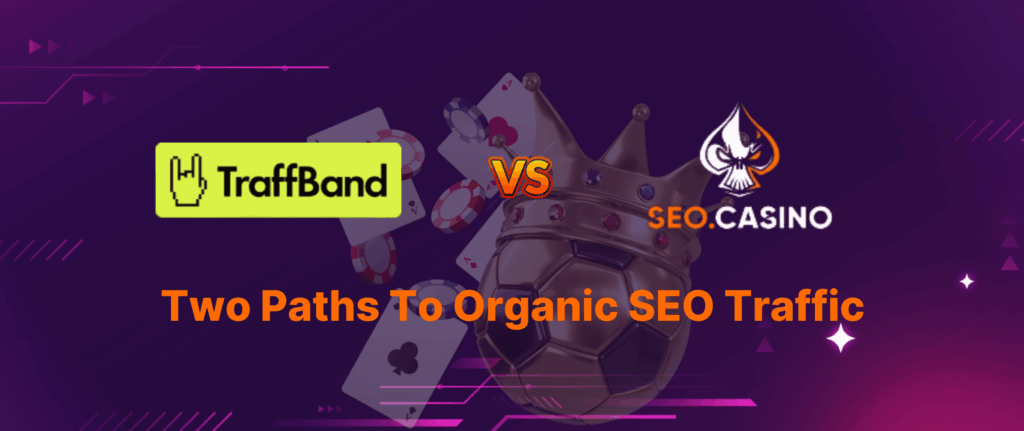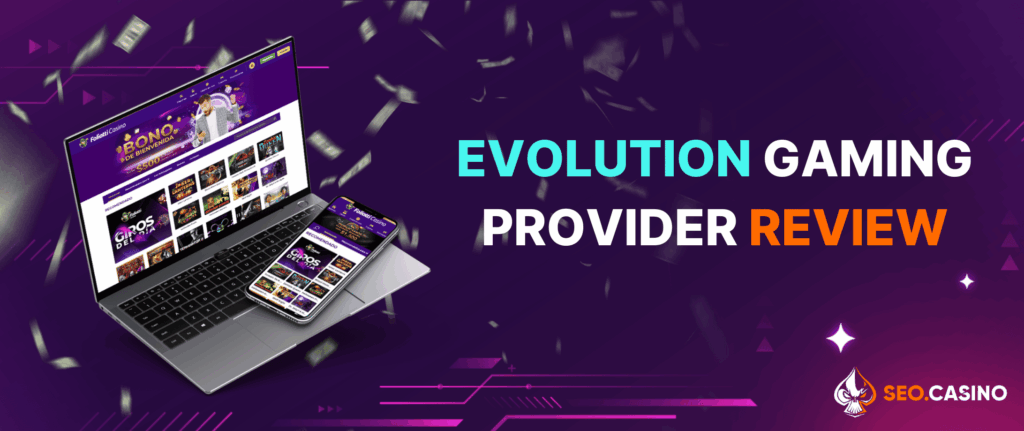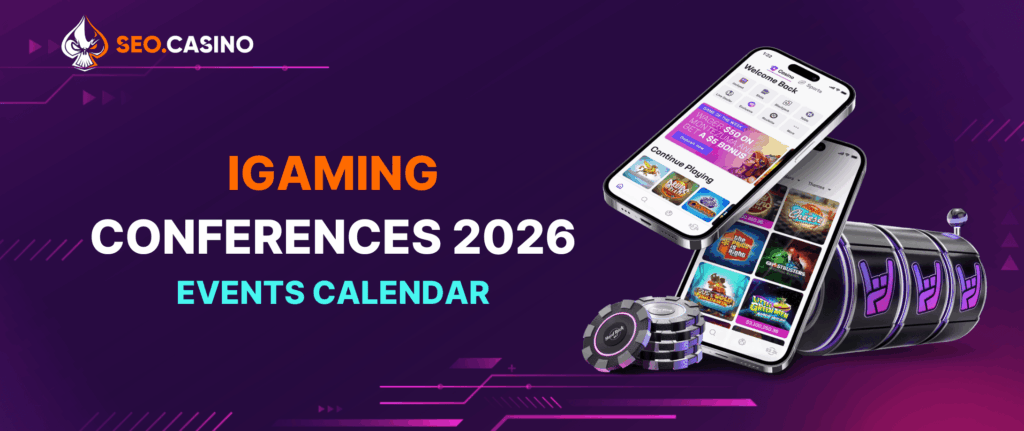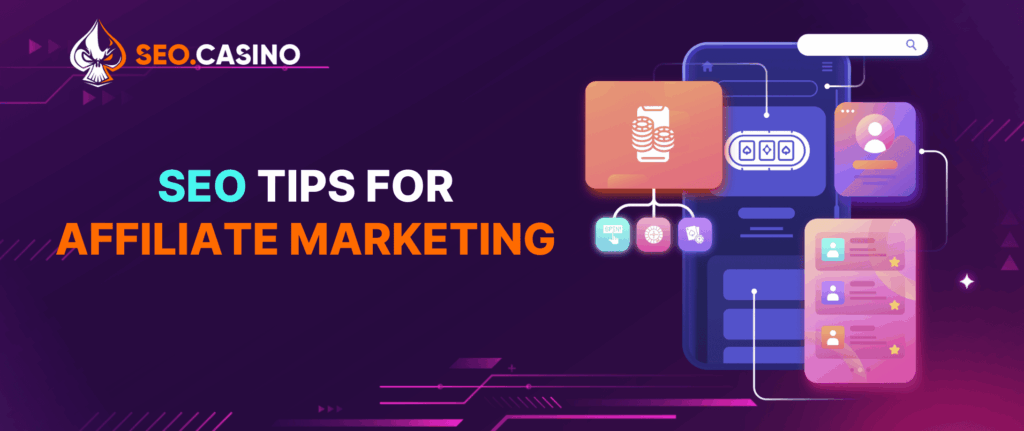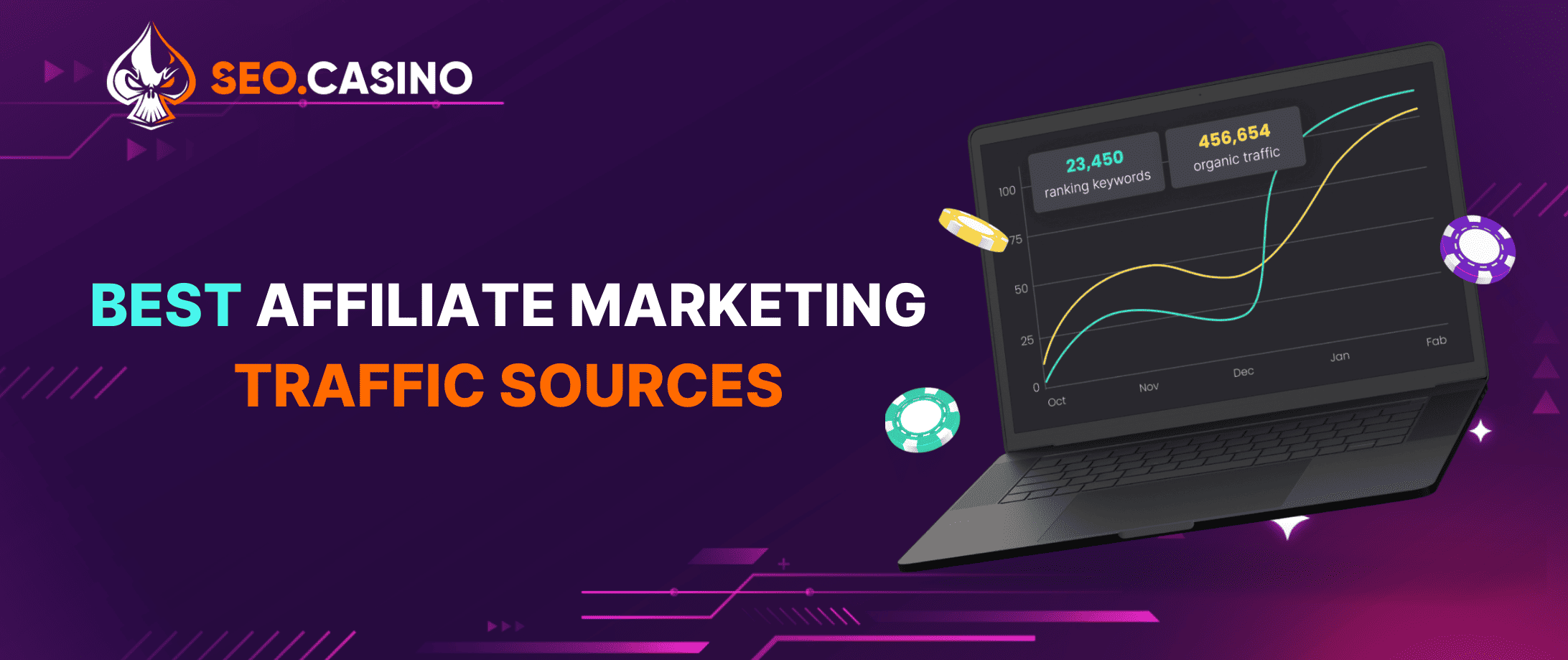
High yield programs rely on the right visitors, not just more visitors. Picking the best traffic sources for affiliate marketing keeps budgets tight and return predictable. A small, focused spend on qualified audiences compounds faster than broad impressions that never convert.
What is a Traffic Source?
A traffic source is any channel that delivers visitors to a landing page, affiliate site, or CPA offer. It shows where users discovered your content and why they clicked. Tracking each traffic source for affiliate marketing clarifies which messages and placements attract intent, so budgets move toward winners and weak channels get trimmed.
Organic traffic arrives without ad spend and usually comes from search engine optimization efforts. Content structure, internal links, and technical fixes lift pages into results for commercial queries. Popular organic paths include search engines, community threads, niche forums, and social posts that rank in search.
Paid traffic arrives after a promotion runs on social feeds, search placements, or publisher inventory. You buy qualified clicks from targeted audiences and control reach, frequency, and timing.
2 Types of Traffic Sources
Traffic flows into two streams: Paid Traffic and Organic Traffic.
Paid Traffic Sources
Users land on your page after clicking sponsored placements purchased through an ad platform. This is often grouped under pay per click. You pay only when a click occurs, which ties spend to engagement and keeps acquisition math clear.
Paid traffic for affiliate marketing includes direct deals with publishers, sponsored posts in social feeds, search ads for high intent keywords, native placements, and in app inventory. Each source can be segmented by audience, device, and geo. Results improve as you refine bids, creatives, and dayparting.
Paid iGaming traffic sources also support brand lift. Campaign managers at SEO.Casino set targeted rules, frequency caps, and exclusions, then monitor cost per click, cost per action, and cost per thousand impressions. Cohort analysis shows which creatives drive second click behavior and which audiences generate repeat conversions. Post click data validates the funnel, so budgets shift toward profitable segments.
Additional paid options include retargeting pools, banner rotations, video pre-roll, and newsletter inserts with clear tracking parameters.
Organic (SEO)
Organic traffic comes from search queries that match your content. Pages that solve a specific problem win clicks and keep rankings stable. Consistent publication and precise on-page optimization build authority that compounds over time.
SEO is a core strength at SEO.Casino. We scale topical maps, integrate internal links, and ship fast templates that rank for commercial terms.
One of our successful cases shows how we boosted a betting site from 0 to 1,200 daily clicks in India and Bangladesh with targeted SEO. By optimizing keywords, site speed, and content, we achieved 718K monthly impressions, secured TOP-1 rankings, and generated 483 monthly first-time deposits. This success demonstrates how consistent SEO efforts can drive measurable results and sustainable growth.
Channels that feed organic growth:
- Blogs that target transactional questions;
- Community groups with persistent threads;
- Niche forums that users consult before buying;
- Organic search results driven by SEO.
Organic programs can feel slower to start, yet they deliver qualified visitors at a durable cost. Variance drops as topical coverage grows and seasonality evens out. Measurement still matters. Use a neutral tracker to log clicks and conversions from both paid and organic sources across:
- PPC and cost per view;
- Organic traffic;
- Media buys;
- Email marketing;
- Mobile ads;
- Video ads;
- Link placements;
- Social ads;
- Retargeting;
- In text ads.

Top 3 Paid Affiliate Traffic Sources
Use focused budgets on proven channels that match intent and funnel stage. The following paid traffic sources scale fast with clear targeting and measurable outcomes.
Paid Advertising
Search ads capture users who already express intent. Build campaigns around tight keyword clusters, align ad copy with landing page promises, and separate brand from non brand queries. Use exact and phrase match for control, add negatives to block low value clicks, and test sitelinks that pre-qualify visitors. Smart bidding tied to conversion values helps direct paid traffic for affiliate marketing toward higher lifetime value segments. Google Ads remains the primary marketplace, with Bing covering incremental audiences.
Checklist:
- Map keywords to single topic ad groups;
- Sync ad headlines with page H1 and primary offer;
- Track conversions with first party events and server side tagging;
- Review search terms weekly to prune waste.
Social Media Advertising
Paid placements on Facebook, Instagram, LinkedIn, and X reach users by interest, behavior, and lookalike similarity. Creative drives results, so rotate multiple hooks, formats, and aspect ratios. Warm up cold clicks with lead forms or pre landers that explain the offer, then retarget engagers with stronger calls to action. Use frequency caps and exclude recent converters to protect margins. Route traffic either to a social page for trust building or direct to a landing page when intent is clear.
Metrics to watch:
- Cost per click and thumb stop rate;
- Add to cart or lead form completion;
- View through assisted conversions.
Mobile Advertising
Mobile inventory delivers reach at efficient prices and excels with short video. Optimize pages for speed, legible fonts, and tap friendly buttons. Target by device, OS, carrier, and app category, then shape bids by time of day. Use deep links for apps and enable post install events to measure quality. Banner and native units can be cost-efficient when paired with strict placement filters.
Best practices:
- Compress images and trim scripts for sub two second loads;
- Use sticky CTAs and autofill forms;
- Split creatives for portrait and square feeds.
Top 3 Organic Affiliate Traffic Sources
Organic channels compound authority and lower blended acquisition costs. Treat them as durable pillars within broader traffic sources for affiliate marketing.
Organic Search (SEO)
SEO captures demand with pages that match search intent. Build topical clusters, link internally from hubs to spokes, and answer comparison queries with structured data. Refresh aging posts and expand FAQs to win long tail queries. Technical hygiene matters, so fix crawl waste, thin content, and messy parameters. Consistent publishing turns rankings into a steady pipeline from affiliate marketing traffic sources.
Quick wins:
- Optimize titles with primary intent terms;
- Add schema for reviews and FAQs;
- Improve Core Web Vitals to lift click through and dwell time.
Email Marketing
An owned list converts reliably and costs little to reach. Offer a clear lead magnet, segment by interest, and send short sequences that educate before the pitch. Use UTM parameters to attribute revenue and prune inactive subscribers to protect deliverability. Weekly digests with contextual links nudge readers back to fresh content or seasonal offers.
Workflow:
- Capture emails via content upgrades;
- Automate welcome series with three concise messages;
- Test subject lines and send times for incremental lifts.
Social Media
Consistent posting and genuine engagement create referral lift without ad spend. Prioritize formats that each platform boosts, such as Reels, Shorts, or carousels. Pin evergreen posts that explain the offer and place links above the fold. Facebook groups and niche communities drive sustained clicks when you answer questions with helpful detail and avoid overt pitches. Younger audiences concentrate on TikTok and Instagram, so tailor hooks and captions accordingly.
Content ideas:
- Short how to clip that solve one problem;
- Comparison snapshots that link to full reviews;
- User prompts that invite comments and shares.
How to Pick the Best Traffic Source for Affiliate Marketing
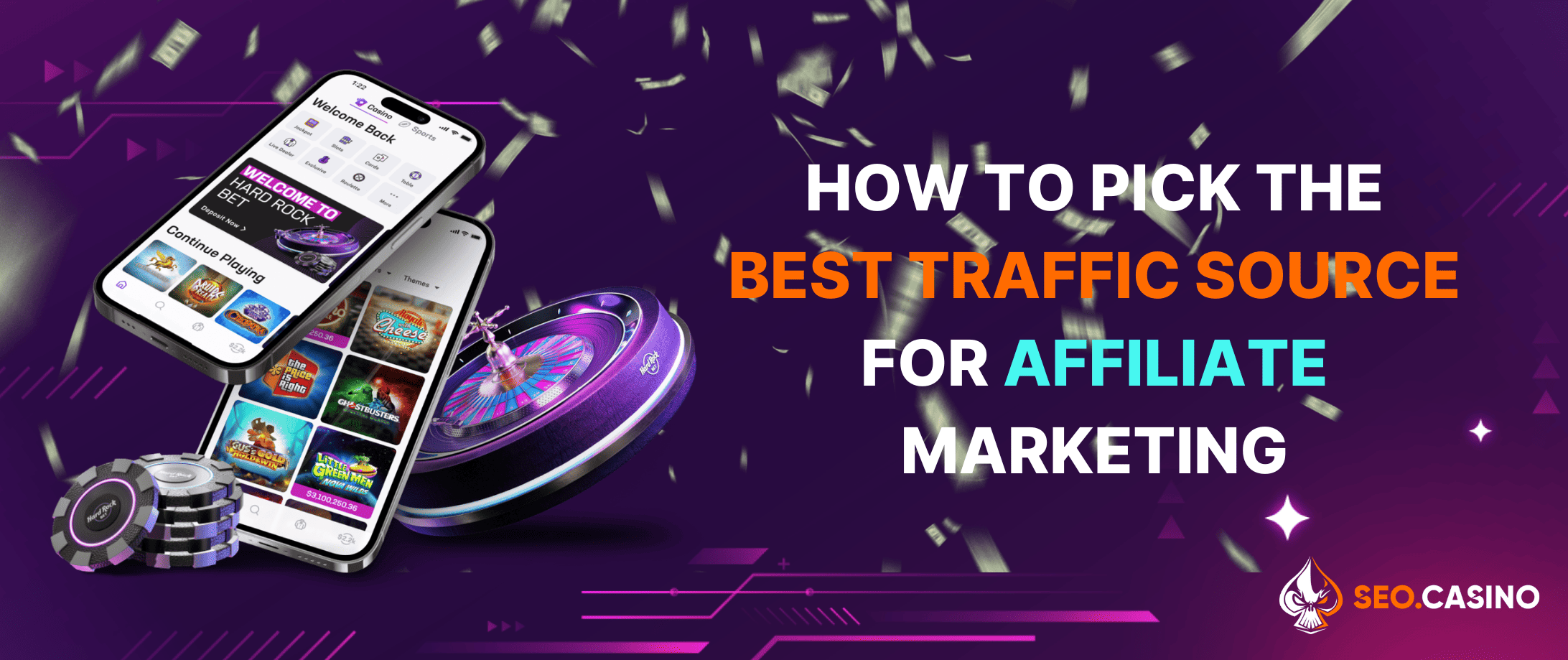
Set a small test budget, define one KPI, and run controlled experiments per channel. Compare like for like on the same offer, geo, and creative. Scale only after repeatable results.
💰 Cost and scale
Model expected clicks and conversions before launch. Favor sources with predictable pricing and steady volume. Track effective cost per acquisition, not just cost per click.
🎯 Quality and intent
Inspect placement, audience fit, and historical conversion depth. High intent queries and communities outperform broad reach. Use pre landers to qualify traffic and raise conversion rates.
🚪 Entry requirements
Prefer platforms with low initial deposits and flexible caps. This reduces risk while you learn.
📜 Controls and rules
Read policy pages and vertical restrictions. Confirm what is allowed for your niche, promo language, and landing formats.
🔧 Optimization levers
Choose channels that offer granular targeting, negative lists, and transparent reporting. You need these for fast iteration.
✅ Credibility
Verify reviews, dispute procedures, and payout history. Avoid networks with unclear ownership or missing support contacts.
| Criterion | What to Check | Go/No-Go Signal |
| Cost and scale | CPC, CPM, daily volume | CPA within goal at test spend |
| Quality | Intent signals, placements | Clean referrers, low bot risk |
| Entry terms | Minimum deposit, billing | Small deposit, easy refunds |
| Rules | Niche compliance, creatives | Written approval when needed |
| Controls | Targeting, exclusions | Full access to logs and reports |
| Reputation | Reviews, support SLAs | Verified contacts and legal info |
Use this framework to rank traffic sources for affiliate marketing by expected profit, not vanity metrics. Add one mention of the best traffic sources for affiliate marketing in reporting to keep analysis consistent across tests.
Conclusion
Disciplined testing beats hunches. Start with tight audiences, clean tracking, and one clear objective per campaign. Allocate budget to winners that deliver stable margin and retire anything that fails to meet target after a fair trial. Document learnings, so future experiments build on what already works across affiliate marketing traffic sources.
Our team at SEO.Casino designs and scales programs that compound organic reach and paid efficiency. If you want a turnkey engine, explore our affiliate casino sites development & SEO services. We build fast sites, ship topic maps, integrate analytics, and connect monetization cleanly so you can grow with less guesswork.


